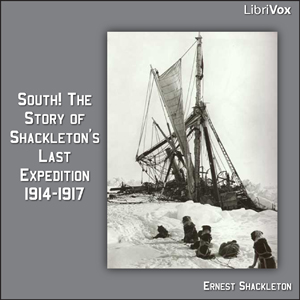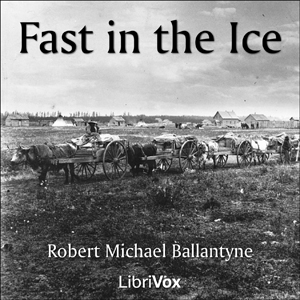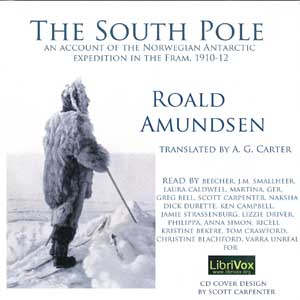- The Preface
- The Arctic Region
- Sir John Franklin
- The Search for Franklin
- The Voyage of the Polaris
- The Alert and Discovery, part 1
- The Alert and Discovery, part 2
- The Greely Expedition, part 1
- The Greely Expedition, part 2
- Peary in Greenland
- Nansen and the Fram, part 1
- Nansen and the Fram, part 2
- Franz Josef Land and Spitzbergen
- The Second Voyage of the Fram
- The Polar Meteorites
- Italy claims the Record
- The Antarctic Region
- Voyages of the Erebus and Terror
- The Southern Cross Expedition
- The Revival of Antarctic Interest
- The Swedish Expedition
- Britain Holds Her Own
While stories of the Polar explorers and their efforts to reach the Poles have been told again and again, the constant renewal of expeditions adds, every year, fresh incidents to the record, until it may almost be said that the fascination of the frozen regions is as inexhaustible as the list of Polar heroes is illimitable. Nor is the interest confined solely to the achievement of modern explorers. However great the results of their exertions may be, the fact that, in spite of all the advantages conferred by recent scientific discovery and modern appliances, the explorers of to-day have failed to penetrate the uttermost secrets of the worlds of ice, renders more impressively heroic the struggles of the earlier travellers, whose equipment, viewed in comparison with that of modern man, was apparently so inadequate and often inappropriate.
No series of Polar adventure stories would be complete without a prominent place being given to the earlier explorers, and especially to that British hero, Franklin, whose name is so inseparably associated with the history of Arctic exploration. The account of his daring voyages and of his tragic end, at the moment of victory, has already been given in many a form; but the tale is one which will stand re-telling for generations yet to come. In the present instance it has been of necessity briefly written, but in such a manner as will, it is hoped, without loss of interest, render clear a comparison of the conditions under which he and his brave companions worked and fought to their death, with those that existed for later expeditions and especially the expeditions of Nansen, Peary, and Abruzzi.
The Antarctic, equally with the Arctic, now commands the attention of man. In the South, as in the North, the British race has again produced explorers who have fought their way into the icy fastnesses. From the time that Captain Cook sailed round the unknown southern ocean, more than a century ago, the British flag has waved in the forefront of the advance. The work which Sir James Ross began, over half a century since, has now been carried farther than ever it was anticipated it could be. By the voyage of the Discovery, the Antarctic continent has been revealed to within five hundred miles of the Pole, and in the gallant exploits of the commander, Captain Robert Scott, there are many who see a repetition of all that made the name of Franklin so immortal.
The source of the information on which these stories are based (as is frequently mentioned in the text) is the personal narrative of the explorer concerned, where available; and if the interest aroused in any of them requires more to satisfy it than the exigencies of space renders possible in this volume, the attention which will thereby be drawn to the more comprehensive records will stand as a slight acknowledgment of the indebtedness of the writer of these re-told stories to the authors of the original narratives. - Summary by the Preface
No series of Polar adventure stories would be complete without a prominent place being given to the earlier explorers, and especially to that British hero, Franklin, whose name is so inseparably associated with the history of Arctic exploration. The account of his daring voyages and of his tragic end, at the moment of victory, has already been given in many a form; but the tale is one which will stand re-telling for generations yet to come. In the present instance it has been of necessity briefly written, but in such a manner as will, it is hoped, without loss of interest, render clear a comparison of the conditions under which he and his brave companions worked and fought to their death, with those that existed for later expeditions and especially the expeditions of Nansen, Peary, and Abruzzi.
The Antarctic, equally with the Arctic, now commands the attention of man. In the South, as in the North, the British race has again produced explorers who have fought their way into the icy fastnesses. From the time that Captain Cook sailed round the unknown southern ocean, more than a century ago, the British flag has waved in the forefront of the advance. The work which Sir James Ross began, over half a century since, has now been carried farther than ever it was anticipated it could be. By the voyage of the Discovery, the Antarctic continent has been revealed to within five hundred miles of the Pole, and in the gallant exploits of the commander, Captain Robert Scott, there are many who see a repetition of all that made the name of Franklin so immortal.
The source of the information on which these stories are based (as is frequently mentioned in the text) is the personal narrative of the explorer concerned, where available; and if the interest aroused in any of them requires more to satisfy it than the exigencies of space renders possible in this volume, the attention which will thereby be drawn to the more comprehensive records will stand as a slight acknowledgment of the indebtedness of the writer of these re-told stories to the authors of the original narratives. - Summary by the Preface
There are no reviews for this eBook.
There are no comments for this eBook.
You must log in to post a comment.
Log in











